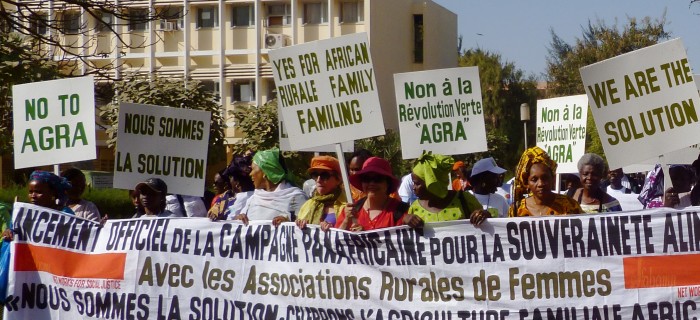Ten Reasons Why the Green Revolution Will Not Solve Poverty and Hunger in Africa
October 2006, Policy Brief No. 12
The Rockefeller Foundation and the Bill & Melinda Gates Foundation recently announced a joint $150 million Alliance for a Green Revolution in Africa (AGRA), provoking immediate criticisms that the proposal fails to take into account the failures of the original Green Revolution. The creators of AGRA claim the initiative will bring benefits to the African continent’s impoverished farmers who—they assert—until now have been bypassed by the first Green Revolution. A day later, probably in an orchestrated move, Jacques Diouf, Director General of UN’s Food and Agriculture Organization (FAO), called for support for a “second Green Revolution” to feed the world’s growing population. UN boss Kofi Annan also weighed in to support the initiative.
Because this new philanthropic effort ignores, misinterprets, and misrepresents the harsh lessons of the first Green Revolution’s multiple failures, it will likely worsen the problem.
The AGRA plan is remarkable given that, according to a World Bank evaluation, the CGIAR—which brings together the key Green Revolution research institutions—has invested 40-45% of their $350 million/year budget in Africa (The World Bank 2004) over the last twenty-five years. If these public funds were not invested in a Green Revolution for Africa, then where were they spent? If they were spent on the Green Revolution, then why does Africa need another one? Either the Green Revolution’s institutions don’t work, or the Green Revolution itself doesn’t work—or both. The Green Revolution did not “bypass” Africa. It failed. Because this new philanthropic effort ignores, misinterprets, and misrepresents the harsh lessons of the first Green Revolution’s multiple failures, it will likely worsen the problem. These are ten reasons why…


 Help Food First to continue growing an informed, transformative, and flourishing food movement.
Help Food First to continue growing an informed, transformative, and flourishing food movement.




